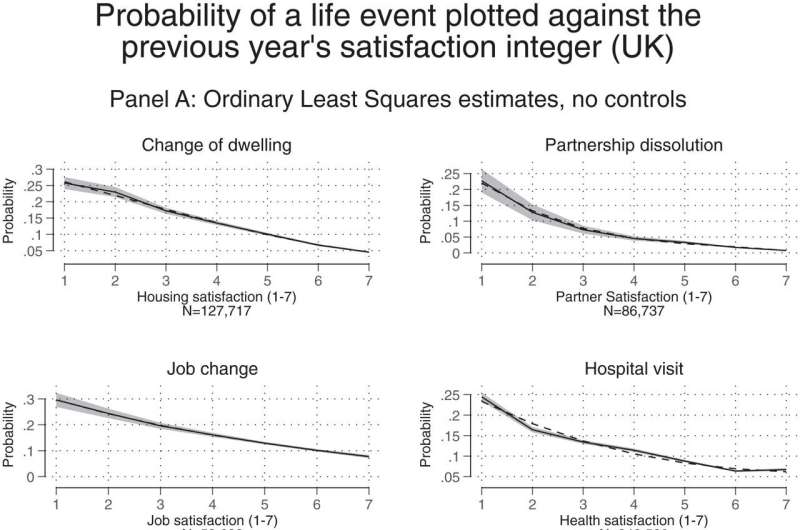October 4, 2022 report
Researchers find numerical ratings of human feelings have value

A pair of researchers at the University of Oxford's Wellbeing Research Center, reports that numerical ratings people use to measure their feelings have value. In their paper published in Proceedings of the National Academy of Sciences, Caspar Kaiser and Andrew Oswald describe their analysis of datasets from people in several countries to compare how they rated their feelings with actions they took.
Most members of a modern society are asked on a regular basis to rate things numerically so that others may gain an awareness of personal factors that are not obvious. People may be asked to rate service at a restaurant, for example, or how much pain they are experiencing at a doctor's office. But because these numerical ratings have such fleeting value, they have not been very well studied. In this new effort, Kaiser and Oswald sought to find out if the ratings people give have value and if so, how much.
The work involved analyzing information in databases for approximately 700,000 people living in the U.K., Australia and Germany. The datasets were created as part of long-term studies aimed at measuring life satisfaction and contained answers to questions such as what a person did for a living and numerical ratings of satisfaction with things such as life in general, their personal relationships and jobs. Each of the participants in the long-term studies were asked the same questions every year for approximately 30 years.
The researchers compared numerical answers to questions of feelings about things with related actions. In so doing, they found associations. People who gave low numbers regarding job satisfaction were more likely to quit their job, for example. The same was found to be true regarding relationship satisfaction or a housing situation, and even health—those who rated their overall health lower were more likely to wind up in the hospital.
The researchers suggest that numerical assessments given by people do have value and thus should be respected by others, such as marketers, economists or even the partners of people giving the valuations.
More information: Caspar Kaiser et al, The scientific value of numerical measures of human feelings, Proceedings of the National Academy of Sciences (2022). DOI: 10.1073/pnas.2210412119
Journal information: Proceedings of the National Academy of Sciences
© 2022 Science X Network





















